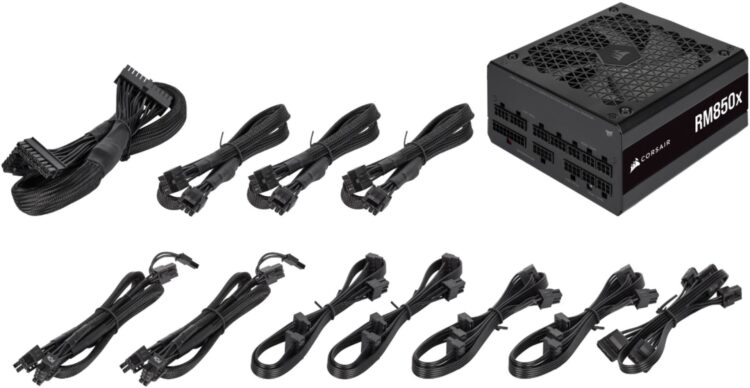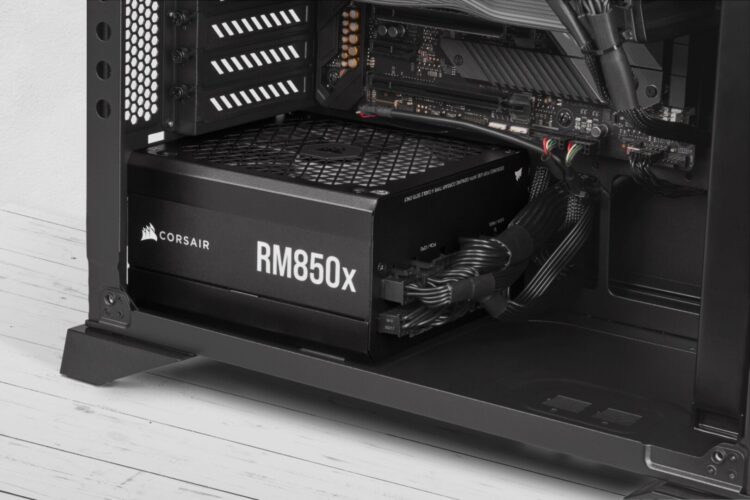If you’re not already intimately familiar with PC power supplies, picking one can be kind of a hassle. You just need a thing to power the other things, right? How hard could it be? But there are cheap ones and bronze ones and gold ones, all with multiple different ports. When picking among the best PC power supplies, or PSU, your first questions should be: what am I using this for, and what do I need? As this is obviously a PC gaming site, we already have the first question answered. Choosing a PSU should come after you figure out what GPU and CPU you’ll be using.
For PSUs, default is 80+ for most of the things you’ll see. As such, a good rule of thumb is to not buy anything that doesn’t provide at least that much. But what does it mean? Well, that 80 refers to how efficient a power supply is at multiple loads. CPUs and GPUs all have certain wattage requirements. So, at load, your PSU needs to be able to effectively supply power to both while running at its minimum efficient level, in addition to everything else on your motherboard. But then there are the subsequent ratings: bronze, silver, gold, platinum, and titanium, which are all more efficient.
“More efficient” means exactly what it sounds like: the PSU wastes less power. Efficiency in the most efficient PSUs goes up to 90% at 20% of load, and that means that at whatever load the PSU is at, you’ll get a minimum of 90% efficiency at all times. A gold-rated PSU is only about 7% more efficient than a standard 80 is at 20% load. But why bother with any of this? Two reasons! PCs obviously run for many hours over the course of a year, so a more efficient power supply will save you money on your electric bill. Believe it or not, the amount you save on your bill can actually be more than you spent on the PSU to begin with. Less efficient PSUs also generate more heat, which can be bad news for your PC over time. The hotter everything is, the more wear on your rig.

The Corsair RM Series, RM850 modular power supply comes highly recommended.
I’ve got the power
One extremely important thing to keep in mind when picking a PSU is the needs of your GPU. GPUs require PCIE power cables to be connected to them from the PSU. Recently, lots of GPUs require two 8-pin PCIE connections. If you try reusing an old PSU with a new GPU, you may find that yours doesn’t have the required cables and, thusly, can’t get the wattage to the GPU to even turn the damn thing on.
Therefore, when picking a power supply, look at it after you pick your GPU and CPU. See if it has the right connection cables. Some PSUs have cables for PCIE and the CPU hardwired to them, while others let you plug them into the PSU. The ones that aren’t hardwired care modular PSUs and you can pick and choose which cables you want to insert. Non-modular PSUs are hardwired with set configurations. There’s also a mix called semi-modular, where some are hardwired (such as the pcie cables) and some can be freely connected.
So, what matters in the end? If you’re really trying to spend the bare minimum, at least get something that’s 80 rated, but get a better-rated one if you can, as it’ll last longer and drop your electric bill a bit. Then make sure and read exactly how many watts your CPUs and GPUs need. Then make sure it’s got the right cables.
If you do all that, you probably won’t go wrong when picking a PSU. But don’t be surprised if you bought the cheapest thing you can find and it either doesn’t work with your other components or just randomly dies one night, needing a replacement. I have a relative who keeps buying junk power supplies and keeping them stocked just in case the one he’s using drops dead. You know, instead of just buying a good one from EVGA or Corsair to begin with. Don’t be like him. This isn’t that complicated.
What matters in choosing the best PC power supplies (or PSU)
Source: Showbiz Celeb Central



0 Comments